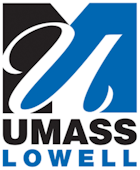A year after obtaining his Ph.D., Professor Chakrabarti joined the Space Sciences Laboratory of the University of California at Berkeley as a Senior Fellow and initiated a research program in terrestrial and planetary atmospheric studies. While there, he participated in one space shuttle and several satellite missions and started a sounding rocket program in Astrophysics that continues today. In 1992, Professor Chakrabarti joined Boston University where his group developed and launched a small satellite for upper atmospheric research. Under his guidance, five undergraduate students wrote a successful proposal to NASA to build and fly a sounding rocket experiment. His research team developed new instruments and techniques for challenging tasks such as sunlit auroras, the prediction of ionospheric disturbances (space weather) and the characterization of interplanetary hydrogen and interstellar dust. From 1997 to 2009 Professor Chakrabarti served as the Director of the Center for Space Physics, a most productive research enterprise at Boston University. During this period, the Center established itself as a national leader in space research following a deliberate and carefully planned strategy. Professor Chakrabarti served on various advisory boards, professional panels and as the guest editor for technical journals and several conference proceedings. He has authored or co-authored over 200 scholarly articles and was awarded a U.S. patent for a UV detector. In Fall 2012, Professor Chakrabarti’s research group moved to the University of Massachusetts, Lowell where the group develops instrumentation for assessing carbon content in forests, solar-terrestrial interactions and direct imaging of exoplanets and conducts scientific studies of galaxies and upper atmospheres. In 2016 he was awarded George W. Goddard Award by SPIE, the International Society of Optics and Photonics.
Experience
-
–presentProfessor of Physics, University of Massachusetts Lowell
Honours
SPIE George W. Goddard Award, 2016



